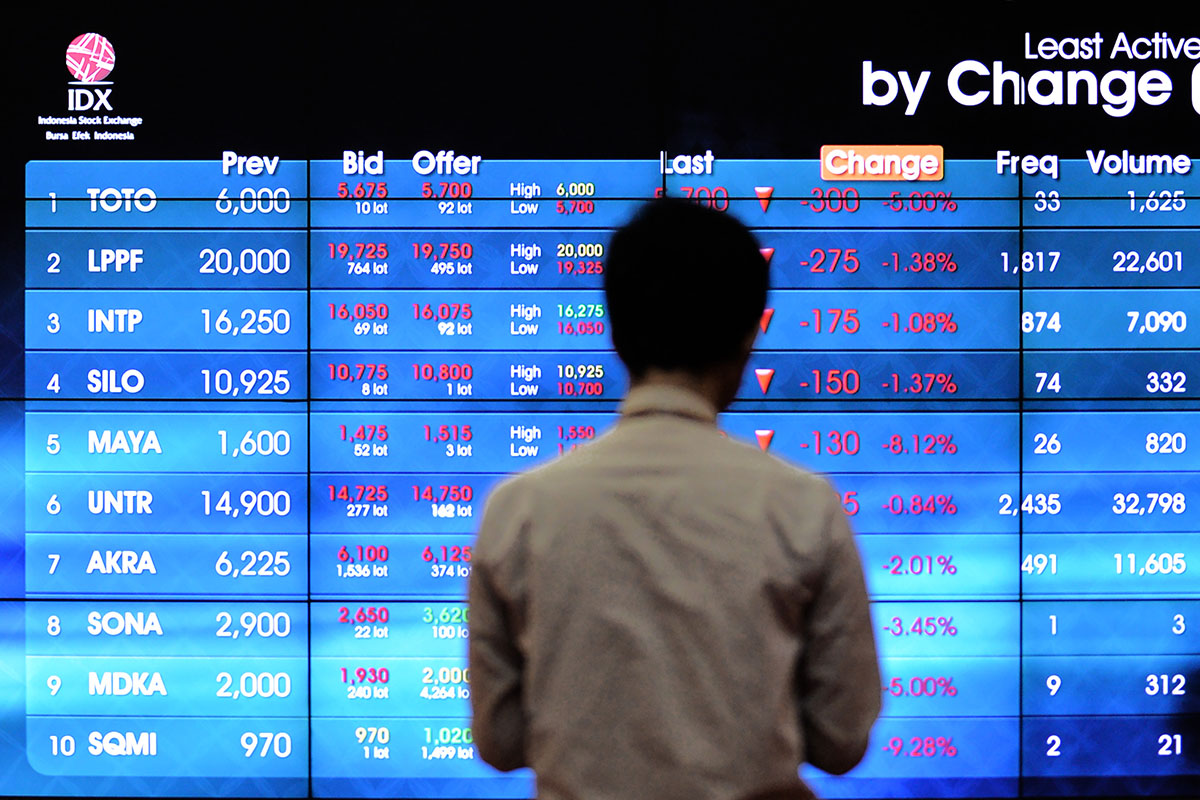Indonesia’s worst equity rout in five years has got strategists asking the usual question after a slump: Are stocks cheap enough to buy?
For Jahanzeb Naseer, the head of Indonesia research at Credit Suisse Group AG, investors should selectively pick shares now that the benchmark gauge is near at its lowest level since October. Foreign investor outflows have reached 1 percent of the market’s value, a past indicator that selling may taper, he said. The Jakarta Composite Index rose 0.2 percent on Friday, capping the worst weekly drop since August 2013.
“Banks have pulled back quite a bit and we are recommending clients to buy at this level,” Naseer said. “Some of the coal stocks including United Tractors are among the stocks that we recommend as well.”
The benchmark measure rebounded on Friday, rallying as much as 1.5 percent before paring those gains, led by large capitalized stocks such as PT Telekomunikasi Indonesia and PT Unilever Indonesia, which rose by more than 2 percent each. PT Bank Mandiri, the country’s largest lender by assets, gained 2.2 percent while Bank Negara Indonesia jumped 3.2 percent.
Although the recent slump may be a chance to buy “high-quality” stocks, Nomura is staying tactically underweight, according to Chetan Seth, an analyst at the brokerage. Valuations are high when borrowing costs are adjusted for inflation, plus equities are vulnerable to a jump in yields, as foreign bond ownership is about 39 percent of the market. He also pointed out that earnings revisions are “narrowly” based, limited to select banks and resource stocks.
Before one can be confident that the stock market’s selloff will subside, there has to be stability in the rupiah, Seth argues. Indonesia’s currency has sunk 4.2 percent against the dollar over the past three months, the worst performing currency in Asia after the rupee.
Katarina Setiawan, an investment strategist at PT Manulife Aset Manajemen Indonesia, focuses on improving fundamentals when assessing the equity market’s prospects. Fourth-quarter economic growth was better than expected, supported by a pick-up in exports.
“Given that global economic growth is expected to remain robust, we can expect that the composite index will look appealing to foreign investors after this selloff,” she said. “The recent volatility has brought valuations to a more attractive level." – Bloomberg
